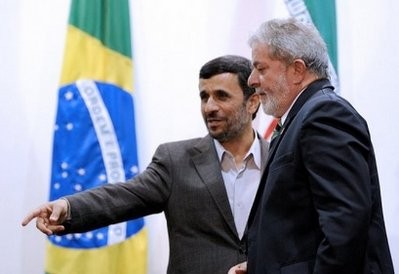The United States has stepped back from a series of harsh measures against Iran and softened proposed UN sanctions to win the backing of China and Russia, the Wall Street Journal reported Thursday.

The newspaper said proposals that would have effectively closed international airspace and waters to Iranian state-owned air cargo and shipping lines had been scrapped.
The proposed package of sanctions had also been stripped of plans targeting insurance for certain Iranian companies and the sale of Iranian bonds.
The United States is working to develop consensus among the five veto-wielding permanent members of the United Nations Security Council on sanctions punishing Tehran for its nuclear program.
But while the United States, Britain and France agree on the need for tough new measures, Russia and particularly China have been more reluctant to sign off on new sanctions.
The Journal said the revised sanctions would more narrowly target "major power centers in Iran, in particular the Islamic Revolutionary Guard Corps," and would firm up existing pressure on Tehran.
The scrapped proposals included tough new measures that would increase Iran's isolation to unprecedented levels.
The US proposals reportedly sought to ban Iran Air and Islamic Republic of Iran Shipping Lines cargo craft from entering international airspace and to prevent the purchase or sale of any Iranian bonds linked to the Tehran government.
It would also have prevented "the provision of insurance services to Iranian companies for international transport-related contracts," the Journal said.
Instead, the proposed resolution now seeks to enforce existing sanctions on cargo shipments, urges country to take additional steps to bar insurance provision and call for "vigilance" in transactions involving Iran.
The United States had hoped to get a new round of UN sanctions passed early this year, possibly around April, the newspaper said, but difficulty securing support could push the effort back into the summer.
While Washington suspects that Iran is trying to develop atomic weapons, the government in Tehran insists its nuclear program is merely designed to meet its domestic energy needs.
























